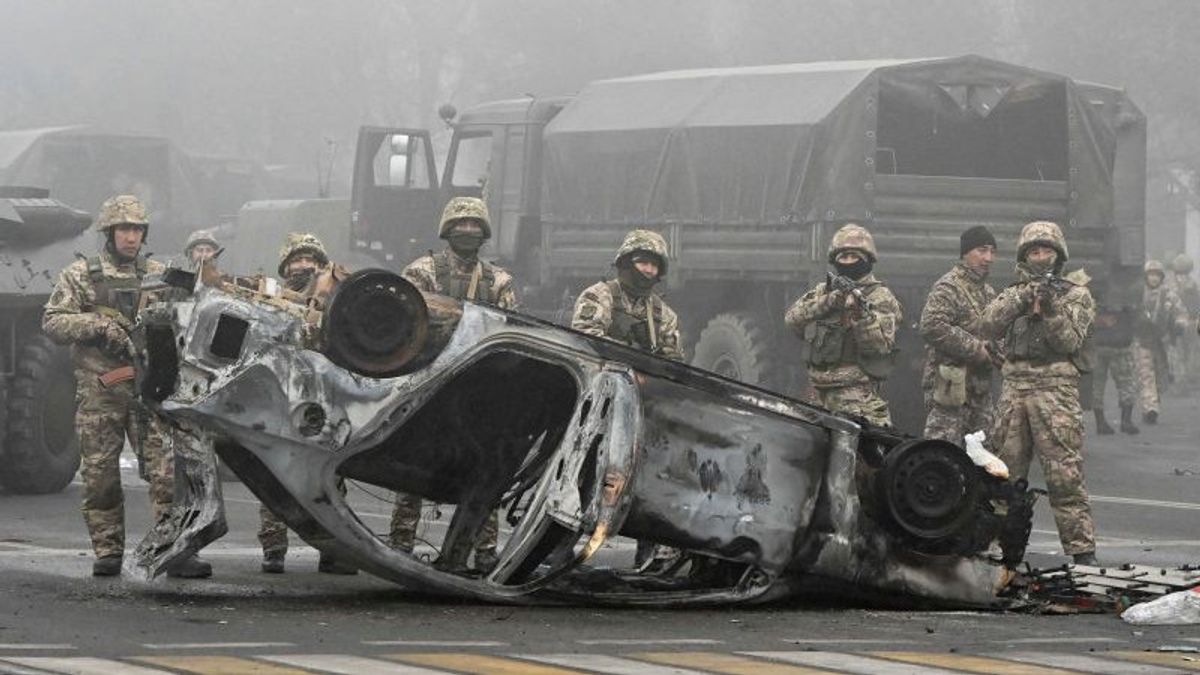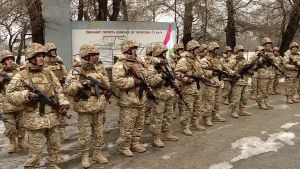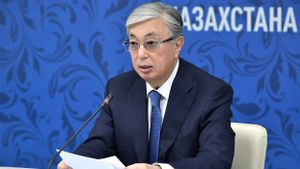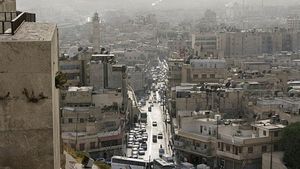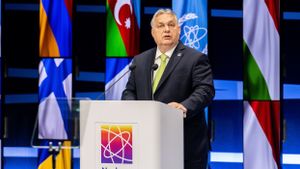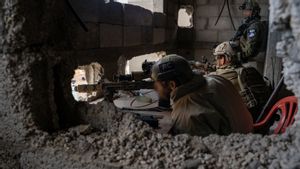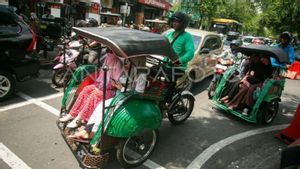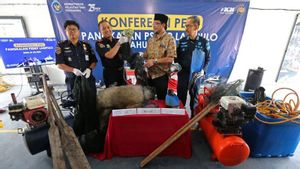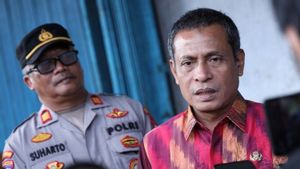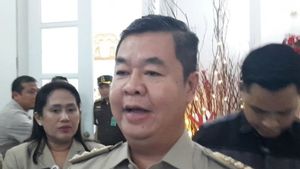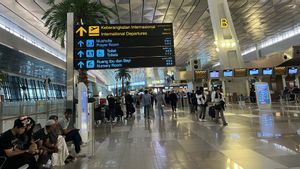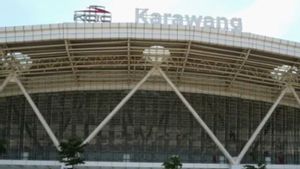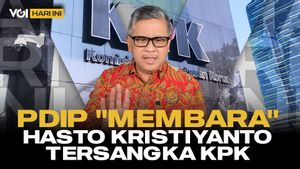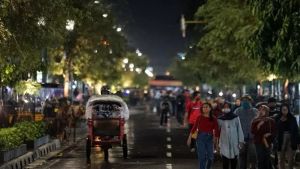JAKARTA - The Kazakh government said the riots that killed 164 people that occurred recently were an attempt to seize power with foreign elements and international terrorism.
Russia, which borders Kazakhstan, agrees with the claim, while Western media have called the unrest an indication of a power struggle within Kazakhstan's ruling elite.
Meanwhile, some Western governments fear what happened in Kazakhstan could be a way for Russia to repeat the 2014 maneuver when Crimea in Ukraine was annexed on the grounds of protecting the ethnic Russian minority in Crimea.
The largest minority in Kazakhstan are ethnic Russians who make up 19 percent of the country's total population. Generally located in northern Kazakhstan.
Similar to Crimea, which is home to Russia's Black Sea Fleet, Kazakhstan is also very strategic for Russia, one of which is the launch center for spacecraft, the Baikonur Cosmodrome.
No one knows exactly what happened, but a number of people are trying to analyze it more neutrally.
Among those who did this was Yevgeniy Zhovti, director of the Kazakhstan International Bureau for Human Rights, which is a leading human rights figure in Central Asia.
Zhovti told Open Democracy that the unrest in the world's largest uranium producer began with protests over the increase in LPG prices in the western city of Zhanaozen on January 2, after the government lifted subsidies.
Quoted from ANTARA, the Kazakh government then sent a delegation led by the deputy prime minister to talk with the citizens of Zhanaozen. The government is trying to avoid a repeat of the 2011 incident when security forces opened fire on protesting oil workers.
The government of Kazakhstan explained that the increase in LPG prices was because the price had been determined by the market mechanism. Residents do not accept it because they think how it can depend on the market if everything related to fuel is monopolized by the government.
The protests continued and spread to other cities, including Almaty, which is already the financial capital of Kazakhstan.
Initially most of the demonstrators took to the streets in solidarity with Zhanaozen.
Two groups then appeared. One voiced the demands of the opposition led by figures such as Mukhtar Ablyazov who is in exile abroad. Second, the youth group who are members of the Oyan civil movement, Qazaqstan!
These two groups are not just demanding a lower LPG price, they are also demanding political reform and the release of political prisoners.
But in general the mass protests were triggered by difficult socio-economic conditions, the pandemic, and suppressed freedom of speech.
Until January 4, the demonstrations were peaceful, but the next day when the youth groups, generally from the marginalized in the countryside, heated up, the situation escalated to violence that killed a number of security personnel.
SEE ALSO:
Invite Russia
The violence prompted President Kassym-Jomart Tokayev to call the demonstrators "terrorists and bandits", even though what these youth groups did is exactly what other young people in the world did, including young Americans who were busy demanding racial equality last year.
But everywhere young people have always been the group who dared to confront even when faced with live bullets.
Outside of these groups, there are groups of criminals and radicals who are taking advantage of this situation to damage Kazakhstan's secure image.
Zhovti believes that the last two masses that sparked the riots even carried their own agendas. They attacked the police and stole weapons. The criminal group itself is said to have been deliberately planted in demonstration movements by the country's own ruling elite.
Facing a situation that seemed to be getting out of hand, President Tokayev then asked for the help of the regional organization of the former Soviet Union countries, the Collective Security Treaty Organization (CSTO).
He invited the CSTO, which consists of Russia, Armenia, Kazakhstan, Kyrgyzstan, Tajikistan, and Uzbekistan, to send troops to Kazakhstan to restore order. Shortly thereafter, a contingent of Russian soldiers arrived in Kazakhstan.
This move was immediately condemned by the West, especially as it coincided with the planned Ukraine crisis talks between Russia and the US.
US Secretary of State Antony Blinken also quipped that usually when Russia sends troops to a country, it will be difficult to withdraw later. Russia retorts that the US is likewise with many countries including Iraq.
Russia insists its troop presence in Kazakhstan is legal because it adheres to the international CSTO agreement, not unilateral actions like it did in Crimea eight years ago.
But Russia's defense does not eliminate the Western opinion that Russia is playing with fire in Kazakhstan by preparing steps to repeat what it has done in Crimea.
Meanwhile, China, which has a 1,800 km long border with Kazakhstan, is trying to be careful.
Recently, China as well as the US, are actively doing business in Kazakhstan which Russia views as the front page of Ukraine and Belarus in eastern Europe.
Kazakhstan is also China's safest route to connect with Europe within the framework of the Belt and Road Initiative (BRI).
But China is pragmatic that whoever guarantees stability in Kazakhstan will be good for China too.
China also believes that whoever is in power in Kazakhstan is impossible to exclude China. This country is trying to wait and as usual, does not want to appear interfering in the internal affairs of other countries.
But if we look further, the Russia-China-US connection in Kazakhstan is more of an effect than a factor behind the unrest.
Conflict of Power
Instead, there is a consensus in the media that the Kazakh violence is more of a power struggle within the Kazakh ruling elite, particularly between President Kassym-Jomart Tokayev and former president Nursultan Nazarbayev who had previously been the hidden ruler behind Tokayev.
Tokayev was Nazarbayev's choice when the figure who ruled Kazakhstan for three decades stepped down in 2019.
That's what makes many Kazahkstan consider Tokayev driven by Nazarbayev who is indeed filling the post of chairman of the country's most powerful Security Council.
Whether to justify a power struggle or to ward off accusations of being Nazarbayev's pawn, Tokayev removed Nazarbayev from the post of chairman of the Security Council shortly after the riots in Almaty.
But Nazarbayev admits he only resigned to make way for Tokayev to restore order.
In fact, Nazarbayev's removal did not stop because his close people were also removed, including Karim Massimov, Nazarbayev's former right-hand man and former head of the Kazakh intelligence service. The accusations are grave; betray the country.
Tokayev himself seemed to continue to consolidate power as if he wanted to erase Nazarbayev's shadow.
"I think many people continue to judge him as Nazarbayev's nominee, that Nazarbayev is behind him and manipulating him," former Kazakh prime minister Akezhan Kazhegeldin told Reuters.
Nazarbayev's former confidant-turned-opposition figure who is now in exile abroad said Tokayev now has full executive power and so "must take command".
The point is that there is always a third internal and external dimension of a volatile country, let alone an energy-rich and strategic country of Kazakhstan.
So it can't be just an internal affair of Kazakhstan, especially since this country is bordered by a giant like Russia who is reluctant to let go of most of the former Soviet Union countries, and has an interest in what is happening in those countries.
But the problem of Kazakhstan will not be solved simply by making generalizations that the protestors are bandits or terrorists.
On the other hand, the discontent of the masses, especially against the Nazarbayev family, which is considered a kleptocratic clan and still controls the country, is something that the Tokayev government also has to answer and seems to be answering.
The turmoil in a country where many parties including multinational companies have an interest in it, one of which is the oil giant Chevron, is always multidimensional.
Not to mention the resonance to other Central Asian countries which are generally ruled by authoritarian regimes but can ensure stability that is not only good for the surrounding region but also good for the countries that have an interest in it.
In this perspective, Kazakhstan's turmoil may not last long because an unstable Kazakhstan will damage other interests including the three giants; Russia, China, and the US.
The English, Chinese, Japanese, Arabic, and French versions are automatically generated by the AI. So there may still be inaccuracies in translating, please always see Indonesian as our main language. (system supported by DigitalSiber.id)
